Over the last while there has been a bit of a misconception over the ‘value’ or ‘place’ of ‘group times’ within settings. Some staff have even been heard to say: “we’re not allowed to have group times!”
Whilst it is true that we should all have moved away from the out-dated practice of sitting young children down in large groups to participate in an adult-led activity for long periods of time; this does not mean that children should never learn in groups. Carefully planned, playful, adult-led learning experiences are an important part of a balanced approach to quality play pedagogy in our ELC (and early primary) settings. One of the main differences when thinking about ‘group activities’ is that most group experiences now are interest based and optional as opposed to key worker groups.
Adult-led experiences in the ELC can be thought of as social “gatherings” where adults encourage children to come together to take part in a specific learning experience. Social gatherings greatly support social and emotional wellbeing; sense of belonging and cultural identity and the development of important life skills such as turn taking and communication. They also offer a wide range of different early level curricular learning opportunities too.
Whilst we should be mindful that to best support learning, the general rule of thumb is ‘the younger the child, the more time we should devote to child-initiated learning experiences’; adult-led learning experiences do still have a place.
With the completion of the 1140 hours agenda, our young children are spending more time in ELC settings than ever before. Add to that the disruption to social lives the Covid-19 pandemic has caused over the last two years and the importance of providing children with these fun, inspiring and motivating adult-led learning experiences through gatherings with their peers becomes an even more important consideration for early years practitioners.
It is important to remember that every planned adult-led learning experience we provide through gatherings must remain child-centred and developmentally appropriate for all of the children invited to take part in them! We must think about who we might encourage to come to each gathering and what knowledge, skills or learning dispositions we want the experience to support or challenge them to develop. Why will being invited to explore this through a gathering be more impactful than the child-initiated learning they would engage in through freely chosen play?
Having decided on the who and the what, we must then think about where and when the group of children will be most likely to achieve success. E.g. Will this group of children learn this best by gathering outdoors or indoors? When would a gathering be best timed to support children’s levels of wellbeing? When might their levels of engagement be higher? Will they still have enough time to wallow in child-initiated free play if we hold a gathering at this time?
Lastly, we must also consider the how. How will we ensure this adult-led experience/gathering is inspiring and motivating; really capturing the children’s attention and sparking their curiosity thus leading to deeper learning and better retention? Remember, all adult-led learning experiences should take place in short, sharp bursts and “be playful in nature; motivating children to be actively engaged in their learning through the practitioner’s imaginative use of materials, storylines, and hand-on activities which children enjoy e.g. songs, rhymes, games, puppets etc.” (Falkirk Council 2020 quoting DCSF 2009*)
A major part of our role as Falkirk Council ELC practitioners is to inspire young children, sparking their interest in the world around them and supporting them to be enthusiastic and motivated lifelong learners. Let’s continue to use high quality, developmentally appropriate and playful gatherings as one part of this amazing work.
In leading gatherings in our settings, we must always remain mindful of Ferre Laever’s theory that a child’s levels of wellbeing need to be high for them to engage effectively in learning experiences. If we try too hard to encourage, perhaps even cajoling, a child to sit down and stay at an adult-led gathering when they are not ready (either developmentally or emotionally) they will not learn effectively! Even worse, such practice may lead to children developing the negative view that adult-led learning experiences are uncomfortable, boring, confusing, or upsetting.
#wonderisers
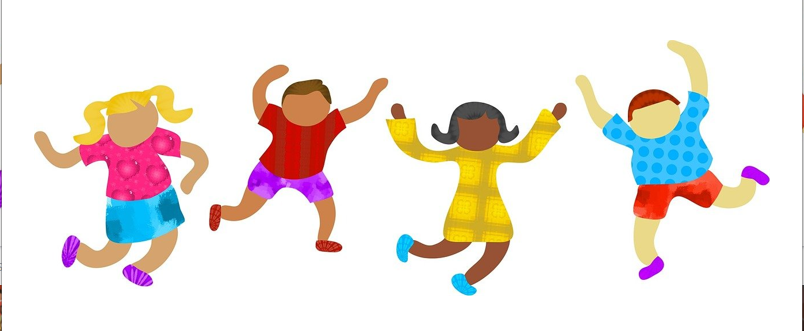
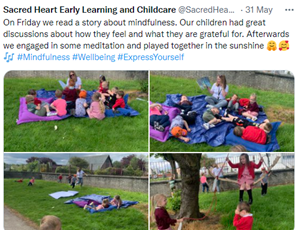
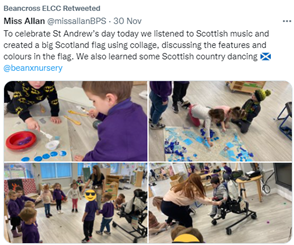
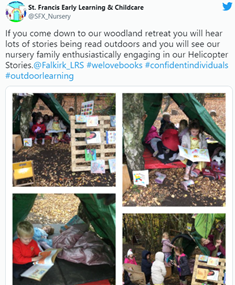
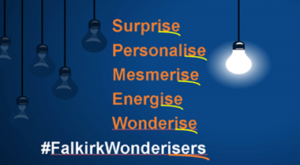
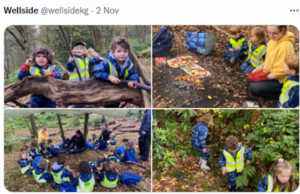
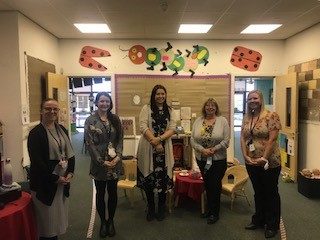
 In Falkirk, we know that play really is the way for our young children. By providing lots of opportunities for free play in high quality environments and adopting a playful approach to teaching we inspire, and motivate, our children in their learning each and every day.
In Falkirk, we know that play really is the way for our young children. By providing lots of opportunities for free play in high quality environments and adopting a playful approach to teaching we inspire, and motivate, our children in their learning each and every day.
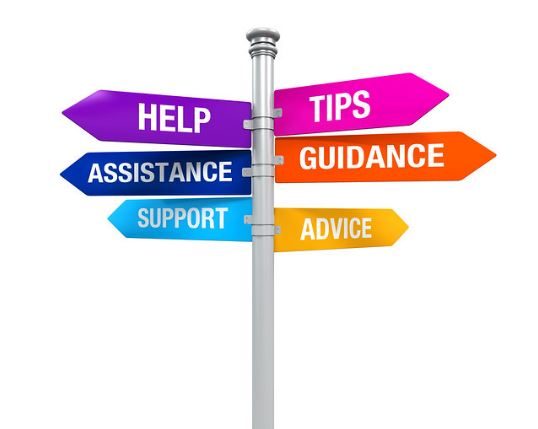

 Check out the second of our our blogs for anyone starting out with play pedagogy for the first time, from those who’ve been there before. This time advice from Frances McMahon who has recently joined the ELC cnetral team after teaching in P1.
Check out the second of our our blogs for anyone starting out with play pedagogy for the first time, from those who’ve been there before. This time advice from Frances McMahon who has recently joined the ELC cnetral team after teaching in P1.


 My name is Rachel Keane and I have been teaching within Falkirk Council for 8 years. For the past five years I have taught between primary 1 and primary 2. Three years ago we embraced Play is The Way. I thought I would share some of the things I wish I’d known at the beginning of our play journey for anyone who is starting out with play pedagogy for the first time this year.
My name is Rachel Keane and I have been teaching within Falkirk Council for 8 years. For the past five years I have taught between primary 1 and primary 2. Three years ago we embraced Play is The Way. I thought I would share some of the things I wish I’d known at the beginning of our play journey for anyone who is starting out with play pedagogy for the first time this year. Try to keep your provocations open ended. Model to the children what small world spaces could look like and allow the children to explore materials and create these spaces themselves. Not only does this free up your time in morning to complete other tasks but it encourages children to take the lead in their learning, developing motor skills, problem solving and their imagination.
Try to keep your provocations open ended. Model to the children what small world spaces could look like and allow the children to explore materials and create these spaces themselves. Not only does this free up your time in morning to complete other tasks but it encourages children to take the lead in their learning, developing motor skills, problem solving and their imagination.
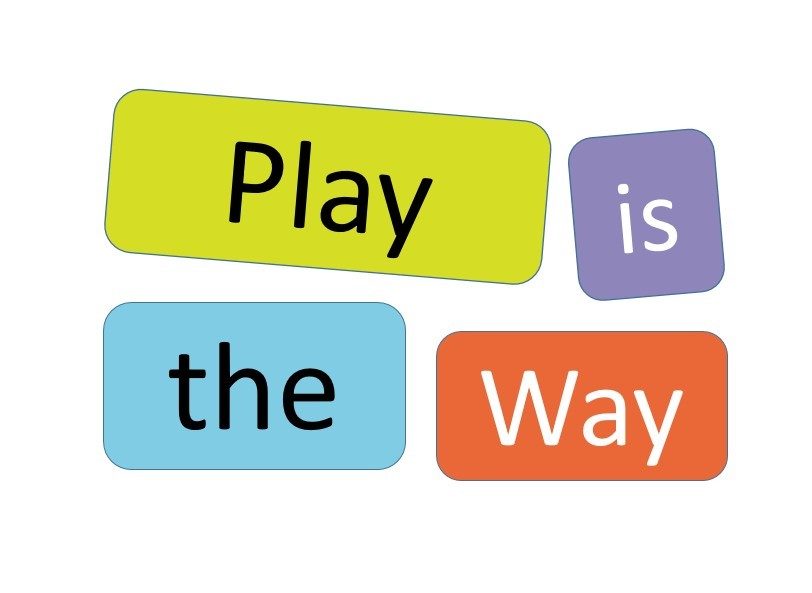

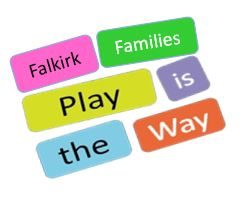 Our central team have also produced materials to support settings share the rationale behind Play is the Way with families and give examples of what this might look like in practice, particularly in P1 classrooms. These
Our central team have also produced materials to support settings share the rationale behind Play is the Way with families and give examples of what this might look like in practice, particularly in P1 classrooms. These  52 P1 and P2 teachers completed a short course with Professor Deirdre Grogan from Strathclyde University to help them embed high quality Play pedagogy in practice in their classrooms.
52 P1 and P2 teachers completed a short course with Professor Deirdre Grogan from Strathclyde University to help them embed high quality Play pedagogy in practice in their classrooms.



 The projects aimed to provide smoother pedagogical transitions for children as they move from one stage to the next whilst using high quality play and playful teaching to improve children’s outcomes in early literacy and maths.
The projects aimed to provide smoother pedagogical transitions for children as they move from one stage to the next whilst using high quality play and playful teaching to improve children’s outcomes in early literacy and maths. 99% evaluations returned stated that the project had met these aims. There was also a significant increase in practitioners’ confidence in the delivery of developmentally appropriate early literacy and maths learning experiences for young children. This
99% evaluations returned stated that the project had met these aims. There was also a significant increase in practitioners’ confidence in the delivery of developmentally appropriate early literacy and maths learning experiences for young children. This 